Daley Downing's Blog, page 37
August 20, 2017
The Genius That is The Hitchhiker’s Guide to the Galaxy

It has recently come to my attention that there is a very serious problem within the book blogging community, and it is this: Not everyone has read The Hitchhiker’s Guide to the Galaxy by Douglas Adams.
This once-cult-classic is now a mainstream sci-fi classic, and successfully joined together sci-fi and comedy (which was what the author was attempting to do in the first place — in the 1970s, and you can’t tell me that wasn’t challenging).
My introduction to this series came from my previous life in England, and I have never stopped loving it since. I’ve read all of the 5 novels in the series (that “homage” by Eoin Colfer doesn’t count), listened to the old BBC radio show, watched the Hollywood movie (ehhh), and the original miniseries so many times that I still have parts of it memorized.
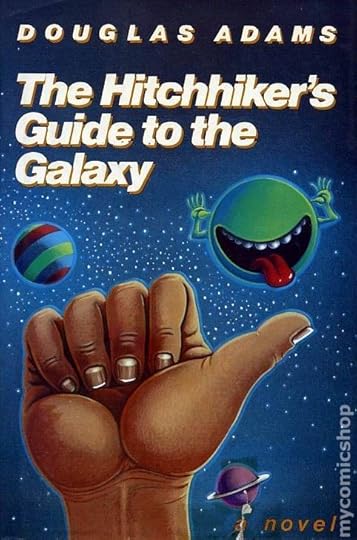
Above is the printing that I own (yes, it is a first edition hardcover, and I am immensely proud of it). There have been several re-releases since the initial publication, and it even lives in some libraries. So, if you haven’t read it yet, you have no excuse to keep putting it off.
The fantastic thing about THHGTTG is that you don’t have to be a big sci-fi nerd (yes, I’m going to use that word) to understand the content. You don’t have to be an expert at astrophysics, spaceships, or alien planets. Not only is most of the science stuff confined to relevant portions of the text, but it’s also easily broken down by the dual narration of aliens needing to explain everything to Arthur Dent, the human, and the Guide itself.
And there’s so much humor, wit and banter, mixed in with light-hearted philosophical discussions, and plenty of tug-on-your-heartstrings moment, too. The only thing that might trip up first-time readers is the very British language (well, Adams was a born-and-bred Englishman), and the references to culture of the 1970s.
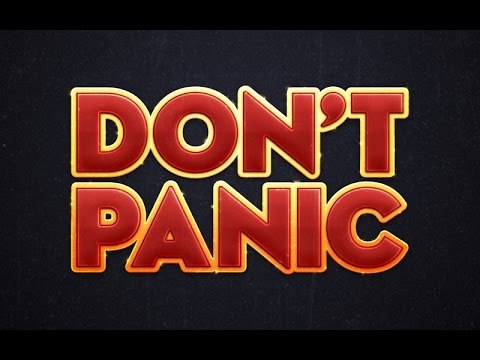
But don’t let that stop you. Not for a minute.
It doesn’t even bother me that Adams makes subtle jabs at everything from organized religion to mega-corporations, social conformity to the fall of Imperialism. The man was entitled to his own opinions, for heaven’s sake (and personally, I feel it’s a really sad day when we can’t separate a few political disagreements from a wonderful story and just enjoy it for what it is).
(Anyway…)
And there are so many valuable nuggets ensconced in the pages of THHGTTG. Such as — You have to know where your towel is. DON’T PANIC. There is something inherently flawed about Thursdays. And most important: The meaning of Life, the Universe, and Everything is 42.
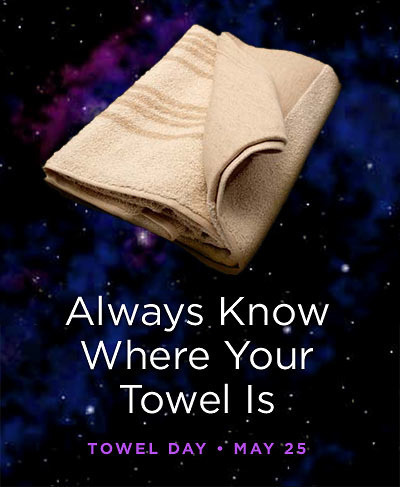
Yes, 42.
The real reason was (well, according to fan legend) that it seemed like the funniest number Adams could come up with at the time.
But also — why not 42? A major part of the series is the search for the Ultimate Question (the answer is 42, but nobody really knew what the question was). And to me this just so completely reflects our modern concerns and sensibilities on this issue, in a very endearing way.
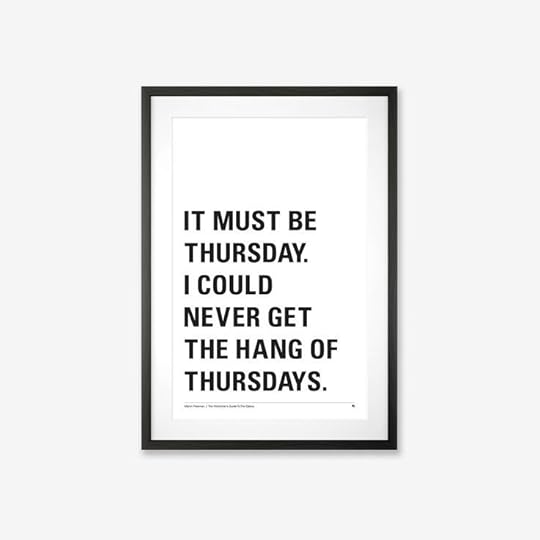
So, moths, you tell me — Have you read The Hitchhiker’s Guide to the Galaxy? Do you plan to after being (so rightly) convinced by my excellent treatise? Is there still a place in this world for light-hearted, not-too-science-y fiction mashups?



August 19, 2017
Confess Your Unpopular Opinion (The Invisible Moth Version)

Oh, this’ll be fun. (Sarcasm inserted.)
Necessary disclaimer: These are just my personal views, tastes, musings, or random brain firings. If you do happen to disagree with me, please don’t come after me with torches and pitchforks. We’re all adults here. (Teenagers included in this instance.)
There are times when I just feel the need to express an unpopular opinion. Often when I do, I discover that in fact I am not the only one who holds said perspective. And this becomes a win-win for all of us lonely outcasts.
So, here we go…
#1: I don’t like Star Wars. Hey, hey, hey, remember my disclaimer! Put those rotten tomatoes back in the compost! If you love Star Wars, good for you (absolutely no sarcasm hiding in this statement). It’s just a big flop for me. Oh, not totally — I liked it when I was a kid, and there was all the fun of the spaceships and the scary aliens and the race to defeat the evil Empire so they wouldn’t blow up more planets. And I liked Yoda (back when he was still a Muppet and not CGI). But the real failings — as I see them — of this series became crystal-clear to me as an adult, when I lived with a Star Wars fan.
Here’s the reason this movie series never fails to get on my nerves anymore:
It makes me beyond mad that the Jedi Council — the supposed good-doers, protectors of liberty, defenders of freedom — actually created the “monster” known as Darth Vader through their own petty actions. If Anakin Skywalker had just been allowed to make his marriage to Queen Padme public knowledge, then he wouldn’t have been going crazy trying to keep it secret while hoping to find a way to save her from dying, per the vision he had. The Jedi themselves could have tried to help Anakin, and he wouldn’t have felt the need to go to the Emperor. Then Darth Vader never would’ve come to be, Luke and Leia would’ve been raised by their real parents, and the Empire would’ve been defeated a lot sooner.
When my family watched Rogue One, I honestly fell asleep, and woke up just in time to see Darth Vader kicking major behind with his red light saber. You go, Anakin, kill ’em all.
Ahem. Moving on…

#2: I didn’t like the way The Hunger Games ended. I am not a fan of dystopia. Against my better judgement, I gave in to peer pressure to read The Hunger Games. Book 1 sucked me right in, and I committed to finishing the trilogy. This nearly killed me. I was Team Gale all the way, and I will never forgive Katniss for ditching him. I also thought it was just ridiculous that Katniss — who had most of the Capitol’s head games figured out early on — couldn’t get a clue that Alma Coin was completely using her, and just knock that horrible woman off much earlier. And Prim dies ANYWAY — come on, Suzanne Collins, but you just invalidated the entire premise of your series!!! That did not go over well with me.
#3: I don’t mind the way Allegiant ended. I’m fully aware that to this day there are people sobbing into their Faction t-shirts because of Tris Prior’s demise. But I one-hundred-percent stand by Veronica Roth determining that was necessary for her story. I certainly don’t think her actions meant death threats to her email were required, folks. If you didn’t like the ending of the trilogy, just don’t re-read it and move on to other authors.
#4: Superhero movies need to take a break for a while. Like approximately 17 years. Again, truly no offense meant to comic book fans who are gushing over some of their fictional idols finally coming to the silver screen. But, as someone who was never part of all that (although I have intense respect for Stan Lee), I’m getting a little…bored with all the superhero films. I’d just really like to see something different in the cinemas.
#5: Radio stations need to play not-as-popular songs. There are lots of bands that produced much more content in their studio recordings than the one single everybody knows. Given that I don’t have access to Pandora or ITunes, what I can listen to is often limited to YouTube and my local radio broadcasts. Considering that I am terrible anymore with remembering the titles of songs/names of artists, that creates issues with searching on YouTube. And my regional radio stations are in general very mainstream and same old, same old, unfortunately.

#6: Please, please, lay off the fairytale re-tellings for a bit. Oh, come on, blow out that torch and return your pitchfork to the garden. There are now so many versions of Cinderella, Beauty and the Beast, and Snow White in our culture that I’m simply tired of it. Why can’t we read more adaptations of Rapunzel, Little Red Riding Hood, The Billy Goats Gruff, Puss in Boots, The Princess and the Frog? Or go in a totally unexpected direction, like the Beaumont and Beasley series does, by turning the traditional tales upside down?
#7: While we’re at it, let’s give Sherlock Holmes and Alice in Wonderland a rest, too. Both of these classics are so beloved that modern variations are literally exploding in our culture, and that makes me weary of them. (Actually, can we add vampires, werewolves, and zombies to this, too?)
#8: Musicals are unrealistic and dull. Back off now, Hamilton fans (don’t make me sic my cat on you). There is something about being in a theatre and watching a full-flung spectacle of acting/music/lighting effects, that transports you to a fictional place, and it doesn’t bother you that people wouldn’t really break into song just after proposing, or admitting they were a drug addict. But when I try to watch movies of musicals, I just can’t do it. The pragmatic flaws get to me too much.

#9: Gel pens are overrated. While this may seem like a small thing to most of the world, I have very tight muscles in most of my body from anxiety, and trying to write with gel pens is too hard. Most of the time, the ink doesn’t flow well, and that means I have to press more, which leads to more tensing of muscles, and the problem is not fixed. (Ballpoints are definitely out of the realm of possibility these days.) I’ve had to switch to exclusively writing my long-hand drafts with rollerballs (which for some reason are generally more expensive and less available than gel pens).
#10: Kale is disgusting. True, I’ve only tried kale twice, but both times it was so salty and/or so bland that it just made me gag. I know kale is one of the new “super foods,” but it can just go and be super somewhere other than my kitchen.



August 17, 2017
The Results of the Cover Design Contest!
[image error]
Good morning! As many of you are aware, I’m embarking on a formal re-launch of Masters and Beginners (prior to releasing Volume 2 later this year), through a new printer/distributor, and with a new cover. And many of you helped me spread the word about the contest I was hosting to determine how to go about the new cover part (thank you!). So now we’re past the decision-making process (which was not easy, I can tell you), and onto announcing the results!
After receiving some truly wonderful artwork, I had to figure out which submission best captured the tone I’m hoping to strike for particularly Volume 1, but also Volumes 1-4 in general. So, I know you’re all on tenderhooks — now I present to you the new cover reveal…
[image error]
(Cue the oohing and ahhing.) This new design is courtesy of “The” Kyle Robert Shultz, who writes the extremely funny and touching Beaumont and Beasley fantasy series. (It’s too early here for searching up links — sorry, folks — but you can find Kyle Shultz on Goodreads and Twitter and he has an author’s website that includes a blog.)
I’m hoping to have the re-release available to all my minions — I mean, to all interested readers in the near future. Watch this space for future announcements on that front!
In other, related news — I was so very impressed with other submissions I received (and I have a habit of thinking about several projects at once) that I’ve also chosen two other artists to create covers for the “supplemental” materials that will be accompanying the “canon” series.
Those submissions are shown here:
[image error] [image error]
Once again, thank you to everyone who is participating in this venture, and I am very grateful to have all this interest expressed! I’m so looking forward to seeing what lovely creations will later come to fruition!
[image error]


August 15, 2017
Just the Two of Us

So, recently, I posted a snippet on Facebook and Twitter about this fantastic episode I caught (while scouring the cable networks in one last-ditch attempt to discover some redeeming qualities in current TV broadcasts).
Stitchers is a program I’ve watched several times before, so I was familiar with all the characters and backstory, and even had a good idea of what was going on without needing to watch the “previously on…” part.
What drew me to it this particular day (about 2 weeks ago now) was that, in the summary, the words “autism” and “empath” were mentioned.
For those of you who aren’t familiar with this show, the premise of Stitchers is that a secret organization founded by the American government uses advanced technology to solve homicides by “stitching” into the memories of the recently deceased individual.
Unfortunately, it has (in my view) become too formulaic, and most of the plots are now too predictable. Also, I don’t really care for the direction the showrunners are taking most of the character development. But, this is just my opinion, so, please don’t let that stop you from watching the show if you’re interested.
Episode 7 of Season 3, entitled “Just the Two of Us,” is a breath of fresh air in many ways. It cuts out the usual (tedious) plotline of find-clues, snarky-banter, confront-the-killer, and instead focuses on the details of the “stitch” itself. It turns out that the stitcher, Kirsten, is stuck in the memories of their current case, and she needs to work through it via the mental process of the victim. The reason this is especially challenging for her is because the victim was autistic, and of course how his brain works is not what most people are used to.
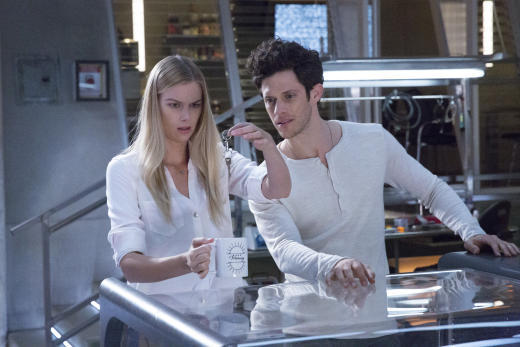
Whenever I become aware of autism “rep” happening in TV/movies, I develop a skeptical perspective until they’ve proven this rep to be accurate and encouraging. The writers and directors of “Just the Two of Us” have (rightfully) earned my respect.
They did a fantastic job of covering sensory perception disorder, trouble recognizing facial/social cues, obsessive behavior, and even the not-so-kind way NT folks may view someone like Tom (the murder victim) as a burden — but never once indicating that Tom was acting maliciously or could have prevented his autism.
This is also the first time I’ve seen a storyline that addressed something that most NTs have very little to no concept of — super-heightened empathy. It’s hard to explain, but basically it means the autist physically feels the depths of somebody else’s emotional responses. For example, if we’re around a family member who’s just lost a job, we feel weighted down by the physical aching and pain of the disappointment, confusion, anger or sadness they’re emotionally processing. It often upsets the autist, since we can’t explain why our heart suddenly pounds, our chest aches, we want to cry or scream, when the thing didn’t even happen to us.
I haven’t experienced a lot of this in recent years (a side effect of burnout, maybe?), but ages ago, it was so strong I simply could not attend church services that strongly moved people, funerals, films with tearjerker endings, etc. I have never come across this mentioned in textbooks or non-fiction memoirs on autism. So this inclusion was amazing to me.

The fact that Kirsten has to explore Tom’s POV so intimately (as if it were her own) is incredible. Not only does this definitely bridge the gap between unawareness and awareness, misunderstanding and understanding, it makes Kirsten so truly tolerant of another’s way of living and that it was totally normal for him. I just loved how the writers set up the script and screenplay, so that Kirsten and her love interest, Cameron, both vicariously saw things through Tom’s eyes in the stitch, which was a subtle and clever way of giving crime-clues to the audience, but also so tremendously beautiful in demonstrating the pros and cons of Tom’s ASD.
Not once in the entire 43 minutes did I feel that Tom was being overtly blamed for things he could not control and must have struggled with his entire life. Having been persecuted the majority of my existence for simply being “different,” I wanted to high-five the people who made this storyline come to the screen. (Okay, that’s a little understated. I wanted to write a letter of recommendation for their resumes and buy them coffee and make them a commemorative art piece for the episode.)
I pushed everyone I know on Facebook and Twitter to download this and watch it with an open mind. I’m doing the same now here. You don’t have to be a regular viewer of the show to benefit.
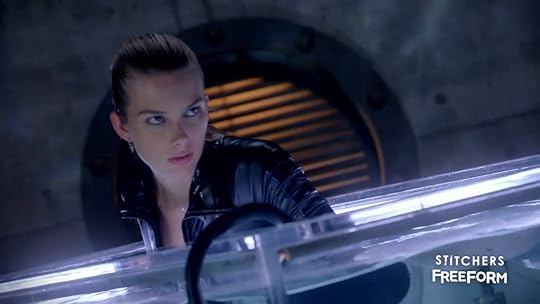
There were so many little things, hints, moments, and whole scenes, paragraphs of dialogue, all that I simply loved. But I’ll wrap up with this:
At one point in the stitch (when Kirsten and Cameron are unwittingly perceiving the situation via Tom’s ASD traits), Cameron relates to Kirsten a situation that was actually part of Tom’s life; at the end of the conversation, Cameron says, “Thank you for listening,” and Kirsten replies, “Thanks for talking to me.”
Later, in the final scene, after Kirsten has figured out who the killer is, she says to the passed-on Tom, “Thanks for talking to me.” I cannot EVEN with how much this made me cry. It is such the absolute truth for so many autists — not only do we want people to listen to us, we want to be able to share our thoughts and feelings, without fear of being judged or told to change.
Kirsten didn’t just listen to Tom, she accepted.
It’s how they were able to solve his murder, together. It’s how Tom helped Kirsten deal with some personal things she was really having trouble with.
She grasped the beauty of what it can mean to think differently.
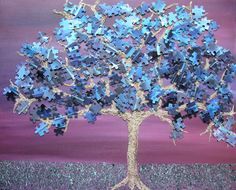


To Review or Not to Review?

That is the question.
For a lot of book bloggers, it’s kind of an obvious thing: “I read the books, then I review the books, then I start all over again.” But — is it just me? — sometimes this routine can (as a blogger) begin to feel a little…stale.
After all, we aren’t being paid to post our reviews (most of us), so is there any set-in-stone rule that says we have to review every single thing we read?
While I tend to put at least small snippets about pretty much every selection I finish on Goodreads, I often don’t bother doing so on my blog. Partly because of the potential-dullness-creeping-in-to-steal-my-joy factor already mentioned; but also due to the simple fact that there are lots of topics I’d like to post on and discuss.

It isn’t merely as a result of not having as much free time to read new titles, or easy access to new titles (money and children issues, of course) — I could easily choose to review something I read ages ago. The fact of I want to be known as more than a reviewer certainly contributes.
Not that there’s anything wrong with being primarily a reviewer, either. There are many bloggers that this totally works for them, so more power to you, ladies and gentlemen. Some of you I truly look forward to reading your reviews and getting to know your thoughts on this classic or that impending release.
But I’ve always struggled to find my niche as a blogger, and I think it just boils down to: there is no way I can be so single-minded as to choose one subject and stay there.

There is just too much I want to cover while I’m in this space. Please, let’s talk about our favorite childhood novels, whether adolescents should be reading adult fiction, e-books versus physical, hardcover versus paperback, the benefits and downsides of ARCs, and if we pick books for our children based solely on the illustrations (hint: that’d be me).
And since I’m not only a reader but a writer as well, there are so many things I want to do on that front, too. Writing advice is so subjective — since what works for one person won’t at all for another — so let’s dive into the discussions on breaking tropes or genre expectations, various marketing concepts, what writing guidelines should really be, if you actually need an agent, and how long is too long a debut publication.

Plus, as a storyteller in general, I’m really interested in the mediums of film and theatre and how stories can be expressed not just in books, but through plays, dance, song lyrics, and music videos. Like I said, there are simply too many wonderful notions to explore in this space, to devote most of it to posting reviews.
So, I really am okay with the reviews being few and far between on this blog.



August 13, 2017
It’s My Birthday
August 9, 2017
My Reading/Writing/Blogging Wishlist
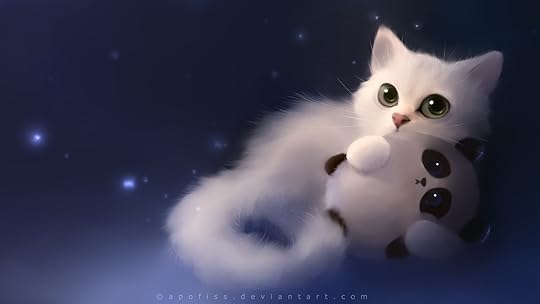
So, there are a few things getting me down these days, but in the interest of not being too terribly whingey lately, I’ll be going for a humorous twist (hopefully) in this post.
Among the complex little things in my life at the moment, I will soon be another year older. I do not like this, Sam, I do not like it here nor there, I do not like it anywhere. Time seems to be escaping from me in recent months, and this is a great kerfuffle of not-niceness. Grrr…
Anyway, one of the upsides of this situation is that people sometimes give you things, yes? So, since this little corner of the internet contains a lot of what I would like these days, here are some lovely little bits and bobs I might wish to have brought into my life via the annual-celebration-of-existence gifting.
Goodreads, could you please give us half-stars for ratings, and make my author dashboard easier to navigate? The half-stars thing is a big deal for a lot of us (I wonder if the higher-ups at Goodreads actually pay attention?). You know, for those books that aren’t quite 4 stars, definitely not only 2, and you want to accurately express your views. BUT.
As far as my author dashboard, I find some of the stats redundant or confusing. Could we get that altered a little, please? Like, instead of listing the reviews of my book twice, why not simply once? And why do you include my personal/reading profile stats in with my professional/writing numbers? *squints at screen and still cannot* Maybe I’m being a bit thick, but I honestly think to separate this stuff would make life less troubling.
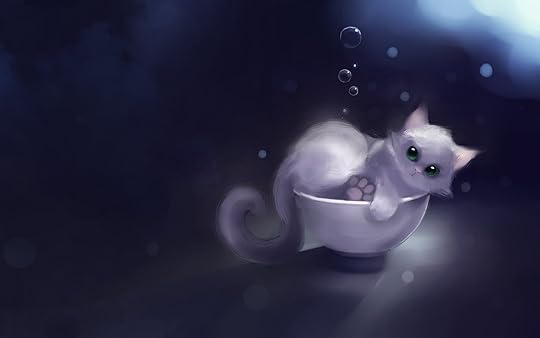
Authors, can we please get more fantasy novels with accurate autism rep? Now, I’m aware that many authors are not well-informed on this subject, and some of them are not ever going to even be considering writing autistic characters. And this does not bother me in the slightest. What grates on me is that what little autism rep we do have seems to be terribly inconsistent — and in some ways, actually inaccurate and rather harmful to increasing public awareness and understanding. (After all, if people told you a rhinocerous was a unicorn, or vice versa, without offering any possible countering information, would you ever learn the truth unless you did some serious independent research?) Hence, if authors present an inaccurate portrayal of autism (or any other learning disorder/neurological condition), most people will, sadly, be none the wiser.
All right, didn’t I promise less moaning this post? Anyway, in my series, The Order of the Twelve Tribes, I have in fact two autistic characters — and they are both based on myself and my oldest son, and we are both on the spectrum. It’s the same as how I observed my cat, Toby, before trying to write scenes including Jules and Sammy (the talking cats). So, some more realistic depictions would be awesome, thanks, folks in the know.
WordPress, maybe you’d like to advertise my blog for free for the day? I’m aware that it’s summer, and lots of people are on vacation and not doing things like blog-hopping; but my stats are rather down, and I’m a tad sad about this. I’m also aware that it is most likely temporary. BUT. Imagine if on your birthday, WordPress spammed people with really gushing accolades about your blog, and then within 24 hours you’d have like a dozen new subscribers? Wouldn’t that be cool?

My family, you know I love you, but please allot me approximately 10 writing hours per week — every week. That means time when I am not interrupted — you need to be able to find your own snack/glasses/answer to your existential crisis. So that I can write in peace and quiet (and have half a chance of it coming out coherent the first time).
Stores in my area, wouldn’t you like my money? And I will give it to you if you sell more of the type of pens and notebooks I use.
Wow, still a lot of whiiine…
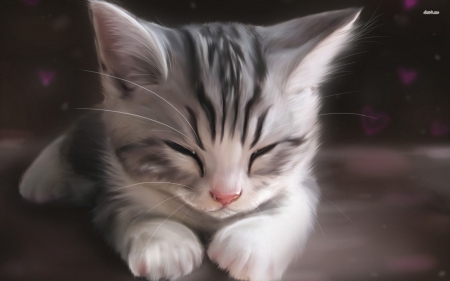
How about people find a way to have my presents delivered via cat? I actually have that in Volume 2. That sounds fun.
And I can get a bunch of cool works by indie authors I’ve been hearing so much about. That’s my most realistic goal for this year, anyway.
Ooh, and lots of people buy Volume 1. Yes, that would indeed make me happy. Of course, being closer to having my official re-launch going would be fantastic, too. Maybe there’s an editing fairy that can help me with the last-minute changes I found (and cast a charm that eases the crying)?
Gah! Enough mardiness! What would your wishlist be, moths?
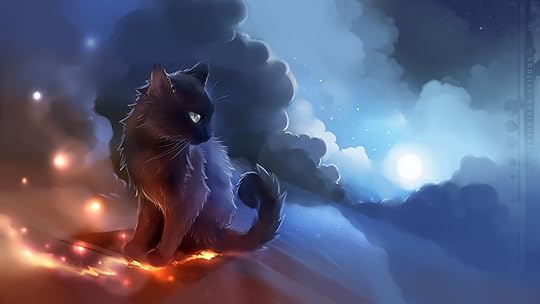


August 7, 2017
The Pros and Cons of Being an Introvert Author

Writing is, in many ways, a solitary pursuit. At least, the actual sit down and write the thing part of the process. Then there comes the editing and the proofreading, cover design and illustrations if you have them, formatting and marketing and all of the other stuff that generally includes — gasp — other people.
Even if you’re an indie author, you need someone else on your team to help when the screaming becomes too much.
And then you — well, at least I do, and many other writers I know — would like actual living, breathing people to buy and read their book.
That could mean having to meet people. In person. Like, for real. Of course, you can market your work online, too — but sometimes that has its limits. And showing up in the flesh could really help encourage sales.
(Funny thing, but readers like to know their favorite authors are in fact humans, too. Or at least dragons.)

So, here are some tips from a natural introvert on how to survive this whole part of the “solitary pursuit” that quickly becomes a team effort.
Only reach out to beta-readers or editors who you trust. I don’t just mean trust them to be nice. Yes, tact is so important for us sensitive souls. But also, most authors in the pre-printing phase wouldn’t take kindly to spoilers of their impending publication floating around the internet. Same goes for cover design (unless you give the artist permission to share ahead of time).
Make sure to rehearse your release spiel. This is really helpful for being interviewed by bloggers and reviewers. It’s so easy for introverts to say on their social media, “I’m writing a book about faeries, talking cats, and a secret organization that saves the world on a regular basis,” but sometimes trying to make that come off your tongue on the phone or via Skype/YouTube video, etc. can feel quite daunting.
If you do arrange a book signing or release talk, practice, practice, practice. Having a speech planned is really important (even if you end up not using all of it on the day). If you think you could handle people asking questions, try to have readers submit a limited number of questions prior to the actual day of The Big Event. Oh, and don’t worry about packing people in like sardines — see your sanity over the possibility of money, and book a small venue, like a coffee shop or a local library.

Know what your limits are, and stick to them. Part of why I decided to go with self-publishing is the complete control over how often I release work, or how much I write about any one subject — or how frequently I in fact have to attend in-person events promoting my novels. I am very aware that if I try to do too much or interact with too many people in one week, it will not end well. Even if you’re traditionally published, there is absolutely no law stating that you have to let your agent over-schedule your life.
Don’t be afraid to put those limits in place. Remember, it does not mean you are a terrible person if you need to take a break, or even make it longer than what most people consider “normal.” After all, if you burn out, the chances of you getting back to writing quickly are quite slim. And if people really like your work and want to see more of it, well, then…they should give you that chance to re-fuel without complaining.

So, there you have it, for now. Any other thoughts to add, fellow indie authors and introverts?



August 5, 2017
Some Writing Tips I Take Issue With

This may seem a little like splitting hairs, but there is a big debate brewing among certain writing/reading communities about what sort of faith-based fiction is “the best” or the “most appropriate.” And considering that I subscribe to a particular beliefs system, and it does affect how and what I write and read, I do feel that this debate will affect me. And that deciding where I stand on some of the more concerning topics is probably a wise plan.
There have been a lot of thoughts regarding this subject floating around my head the last several weeks. One: I totally think that typical “Christian fiction” has become way too categorized, unappealing to non-churchgoers, and really just “preaching to the choir.”
Two: I definitely think that it’s time for more Christian authors (meaning religion and lifestyle, not profession) to be writing “outside the box.”
Three: It’s more than beyond time for churchgoers of all denominations to stop telling writers of non-traditional genres (in the faith-marketing area) that what they’re doing is “wrong.”
Could some members of the Christian speculative fiction community please back me up here? I’m reading a lot of similar musings on your blogs and social media pages. And it’s helped me to feel that I’m not alone, and that has made me feel good.

Here are some other “guidelines” I think we should be bending:
The idea that faith-based fiction can’t have anything truly horrible or horrifying or even minorly dastardly in it. Think all the sappy Hallmark movies rolled into one. All the time. Absolutely no hint of bad language or sin. Not only is it intensely unrealistic, it is extremely off-putting to non-religious folks. If you’re a writer with a specific code of conduct for your characters — even the sinners — then please stick to it. But it doesn’t need to be so strict that the worst thing that ever happens in your novel is the protagonist breaks a nail.
Readers will relate so much better to a narrator whose spouse has just been caught having an affair (and, no, you don’t have to provide all the sensual details to get the point across), or a secondary character who spent a few days in jail after getting a DUI. This is real life. And if you want readers to find hope in a story of redemption and mercy and personal growth, this type of plotline is a great place to start.
The idea that faith-based fiction can have all the terrible and terrifying things it wants as long as it promises the glory of salvation. Too far the other side of the coin. Personally, I don’t think showing all the various sorts of depravity the world has experienced/is experiencing, and indicating that the only way we’ll find true peace and happiness is after we die and go to Heaven, is going to win people to a spiritual cause. Nor do I feel it’s ethically or morally responsible, quite frankly.
Why can’t we have a balance, of some bad things happening, but there being enough good while we’re still alive on this planet, to help keep the characters going, and the readers, too? (Cue the famous-and-best-ever Samwise/Two Towers speech.)

The notion that “true Christians” don’t ruminate on the dark and less-than-holy things of the world. Sorry, folks, but we do live in a fallen world — and how the heck are we going to explain the difference between the dark and the light if we don’t ruminate at least a little bit?! Whatever happened to the novels about a kid who lived a “bad” life — sex, drugs, juvie — then regretted his/her mistakes, and wanted to find a better way of living? Then a minister or angel in disguise meets them on the road when their car breaks down, and a message of hope and forgiveness gets woven into the story without being too preachy?
We truly need to have morally good characters — they go to church, they don’t smoke, they always recycle — that have a crisis of faith due to unfortunate circumstances. Or heroes that we know will do the right thing, but maybe they’re sometimes tempted to lie, or act on their attraction to a pretty girl, or consider getting drunk — but then they have this important moment of weighing the pros and cons and making a decision not to behave a certain way. Fictional people who mess up and try to learn from it are very easy to empathize with.
The concept that “true Christians” don’t ruminate on things like aliens, mythical creatures, other dimensions… Blah, blah, blah. I really cannot even with how ridiculous this is. How much of the Bible itself is devoted to unseen realms, dreams, miracles, visitations from angels, on and on?
C.S. Lewis and J.R.R. Tolkien really broke the mold in their lifetime, and we need to be proud of following in their footsteps. There is so much benefit to seeking out things you can’t see in the natural world, don’t necessarily understand right away, and may even defy conventional explanation. Trust me on this.

What do you think, my community? Anything to add to this slight diatribe?



August 4, 2017
The Conundrum
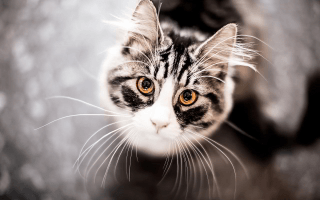
Once upon a time, there was a girl who loved to read. She mostly read whatever she could get her hands on — picture books, novels, biographies — as long as it came from a library or a school book fair, or as a gift.
Then one day, the girl realized she was technically all grown up, and capable of purchasing her own books. And she wanted to, because this sounded tremendously exciting and mature.
Except she didn’t know what to get. So she wandered the bookstore, and ended up buying newer editions of books she had read as a child, and copies of novels she had recently returned to the library.
This went on for a while. But eventually the young woman became a moth, and ran out of things to read.
(You tell me which one was more scary.)
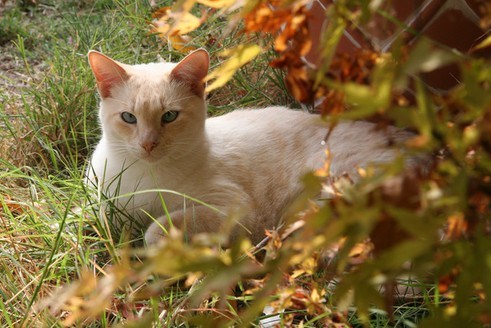
So, the moth started scouring the new invention of the internet to find recommendations for new authors, genres, sub-genres, and even graphic novels (a frightening never-before-attempted venture) to try reading.
Some of what she found really filled her soul with joy.
But, unfortunately, a lot of it was an epic fail.
As time passed in this pattern, the moth began to realize that she was no longer a fan of traditional historical fiction, mysteries, or contemporary romances (a.k.a. “chick lit”).
This meant the moth began to panic, just a little.

Reading was so important to the moth, the idea of not having anything new and life-fulfilling in the form of books to add to her already vast array of fiction (and non-fiction) experiences created a slight problem.
The moth grew tired of fluttering endlessly around her local library, her wings weary of trying to carry 14 novels marked “new release” (11 of which would almost immediately be returned, after frustratedly skimming a few pages).
As she ruminated on this tragic turn of events, she began to hyperventalate, just a touch.

Fast forward to the current time. Today, the moth hopes to calm her frazzled nerves by indulging in modern sitcoms on DVD, for a nice change.
She will soon be gaining another year of existence on this Earth, and she doesn’t like that, either.
To celebrate this twistedly momentous occasion, she’s planning to find new authors and titles that will bring a substantial influx of plot-excitement and character-love back to her heart.
Except she has very little idea of where to start.



Daley Downing's Blog
- Daley Downing's profile
- 36 followers






